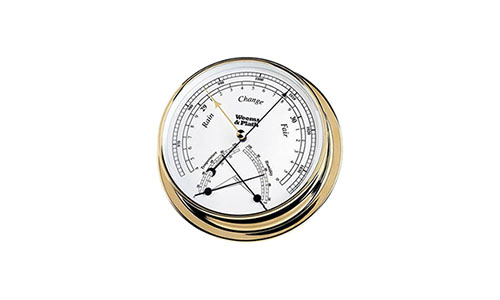
September 11, 2014, by Kelly Cookson
Do changes in aggregate GDP influence business decisions made by SMEs?
Gross domestic product (GDP) figures show that the economy is now 0.2% ahead of its pre-crisis peak. The figures, from the Office for National Statistics showed that the economy grew by 0.8% in the second quarter of 2014. In the August 2014 Business Barometer survey, our panel of UK small business owners and business advisers were asked how much influence changes in macroeconomic factors have on their business decision making.
The responses from small business owners were as follows:
| How relevant are changes in aggregate GDP to your business decision making? | |
| Very relevant | 4.1% |
| Relevant | 14.9% |
| Moderately relevant | 27% |
| Of little relevance | 32.4% |
| Not relevant at all | 21.6% |
| Which other macroeconomic indicators are of significant influence to your business decision making? Tick all that apply. | |
| Total tax revenue | 15.5% |
| Exchange rates | 23.9% |
| Inflation | 49.3% |
| Average wages | 36.6% |
| Interest rates | 50.7% |
| Unemployment levels | 21.1% |
| Other, please specify | 12.7% |
| How often do you monitor macroeconomic indicators that could affect your business decision making? | |
| Weekly | 13.5% |
| Monthly | 27% |
| Quarterly | 23% |
| Rarely | 29.7% |
| Never | 6.8% |
Adrian Smith of Triple S Clutch and Brake Services said: “GDP has risen above its pre-crisis peak only because we have a larger economically active population (mainly due to immigration). The pie is bigger but the number of mouths to feed is also bigger. I do not want to talk the economy down but companies like mine who rely mainly on domestic sales will not see real growth until productivity rises, leading to an increase in real disposable income.”
Another panellist commented: “The macroeconomic factors are important indicators. They influence confidence which itself affects business levels. It also influences markets with sometimes rapid changes in the stock market and other financial markets that impact on trade.”
UK business advisers were asked about their clients’ experience of monitoring macroeconomic indicators:
| How relevant are changes in aggregate GDP to business decision making of the businesses that you advise? | |
| Very relevant | 1.1% |
| Relevant | 12.4% |
| Moderately relevant | 34.8% |
| Of little relevance | 37.1% |
| Not relevant at all | 12.4% |
| Don’t know | 2.2% |
| Which other macroeconomic indicators are of significant influence to business decision making of the businesses that you advise? Tick all that apply. | |
| Taxation | 64% |
| Exchange rates | 25.8% |
| Inflation | 51.7% |
| Average wages | 50.6% |
| Enterprise density | 4.5% |
| Interest rates | 77.5% |
| Unemployment levels | 15.7% |
| Other, please specify | 6.7% |
| How often do the businesses that you advise monitor macroeconomic indicators that could affect their business decision making? | |
| Weekly | 0 |
| Monthly | 20.2% |
| Quarterly | 11.2% |
| Rarely | 58.4% |
| Never | 1.1% |
| Don’t know | 9% |
Panellist David Shaw said: “GDP indicators need to be borne out by experience on the ground – if they don’t match reality they get ignored. It’s all a question of relevance, a match between reality and theory and what customers are doing or saying.”
Another adviser panellist commented: “The collective indicators help define a level of business confidence, but the SMEs I advise do not incorporate them formally into their business planning process. Indicators of economic health closer to the business are the key drivers. Is demand for the product growing? Are we near capacity? What is happening locally which will affect demand?”
The UK Business Barometer and UK Business Adviser Barometer surveys are run by the Haydn Green Institute for Innovation and Entrepreneurship. The results of the surveys are instantly processed and posted on their respective websites: www.ukbb.ac and www.ukbab.ac
Businesses and advisers wishing to contribute as panellists on the project can register via the websites.
The UK Business Barometer has a group on LinkedIn.
Previous Post
Crisis, opportunity and understanding innovationNo comments yet, fill out a comment to be the first

Leave a Reply